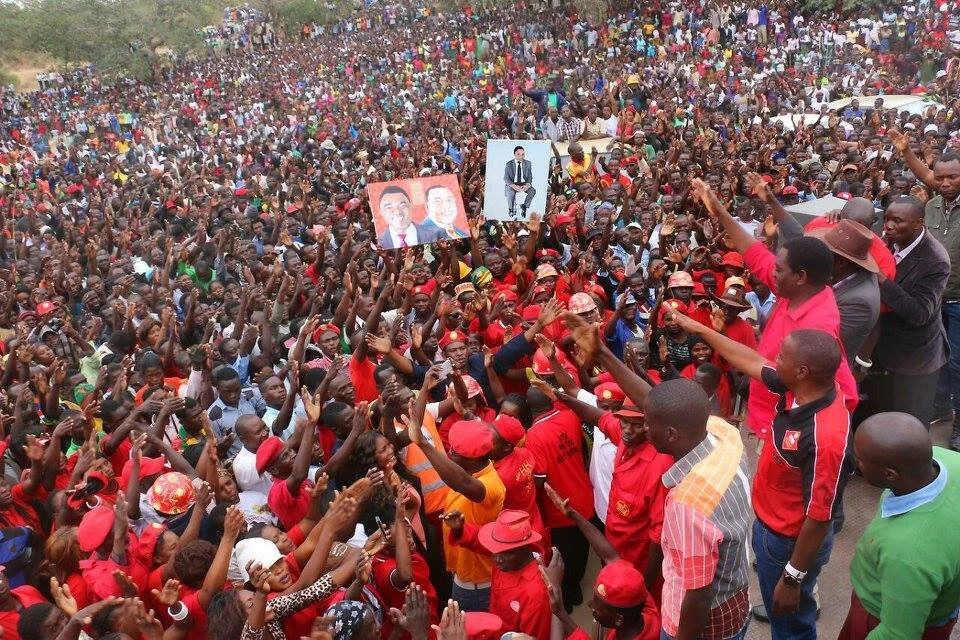Zambia goes to the polls on 12 August, with the two main candidates offering very different visions for the southern African state. Edgar Lungu, the populist incumbent, has presided over a ballooning debt, escalating inflation, frequent allegations of large-scale corruption, and a rapidly shrinking democratic space. His main opponent, Hakainde Hichilema, is a successful businessman offering a progressive economic reform program.
The recent death of Zambia’s first President, Kenneth Kaunda, served as a reminder that Zambia has often been a bellwether for the region. Under Kaunda’s 27-year leadership, Zambia was at the forefront of freedom struggles across the region. In 1991, Kaunda’s peaceful departure from office, after losing an election, was among the first democratic transitions in the region, which had previously been ruled for decades by coup-leaders and self-appointed presidents-for-life. Since then, Zambia has managed two more particularly difficult transitions, with the defeat of the ruling party and fourth President Rupiah Banda in 2011, and the infighting that surrounded Guy Scott’s acting Presidency from 2014-15. But difficult as these periods were, Zambia’s constitution ultimately prevailed, and political tensions did not spill over into violence.
Today, the prospects of holding a credible and peaceful election are looking dim. In Lusaka, the U.S. Chargé d’Affairs and British High Commissioner have, on several occasions, expressed concern, highlighting government restrictions on the opposition, including media control and cancellation of opposition campaign events. Their expressions of concern have been met with vocal criticism and intimidation from members of the ruling party. And these words may not be empty threats: in recent years, an American ambassador and an IMF representative have been withdrawn based on government’s response to their comments about corruption and the struggling economy, respectively. An election victory next month for President Lungu would likely entrench this authoritarian style of governance and bring with it further economic woes on an already struggling population.
At first glance, the Zambian election might seem – to outside observers – to be low down the list of priorities. A tense situation in South Africa, ongoing protests in eSwatini, the growing threat of insurgent terrorism in Mozambique, and a second decade of crisis in Zimbabwe may very well weaken any sense of urgency or concern about Zambia. However, this prevailing view needs to be challenged.
Failure in Zambia’s upcoming election will fuel further instability in the southern Africa region. Although its economic potential has remained largely unrealized through successive regimes, Zambia has often played an important role in demonstrating progressive politics and the rule of law for regional counterparts. And at this time of uncertainty, it is even more important to recognize Zambia’s geopolitical importance. With eight international borders, Zambia serves as a bridge between southern Africa and east Africa, and between Angola on the Atlantic and Mozambique on the Indian Oceans; it is also home to the most southern part of the Great Lakes and has a border of 1200 miles with the Democratic Republic of Congo.
It is thus critically important for Zambia to be a neighbour that serves as a force for good, not the ally of failure. Aside from the intrinsic importance of maintaining its hard-won democratic gains, stability, and progress, Zambia can provide the best possible example of an inclusive and liberal administration in a region where democracy and human rights are under mounting threat.
Charlotte Scott, PhD was the Second and briefly First Lady of Zambia (2011 – 2015). She has had a long career working on poverty-reduction programs, and now works on climate-smart livelihoods in Zambia’s poorest communities. Follow her on Twitter: @CharlotteSc0tt
DISCLAIMER: The views expressed in this publication do not necessarily reflect the views of Vanguard Africa or the Vanguard Africa Foundation.

